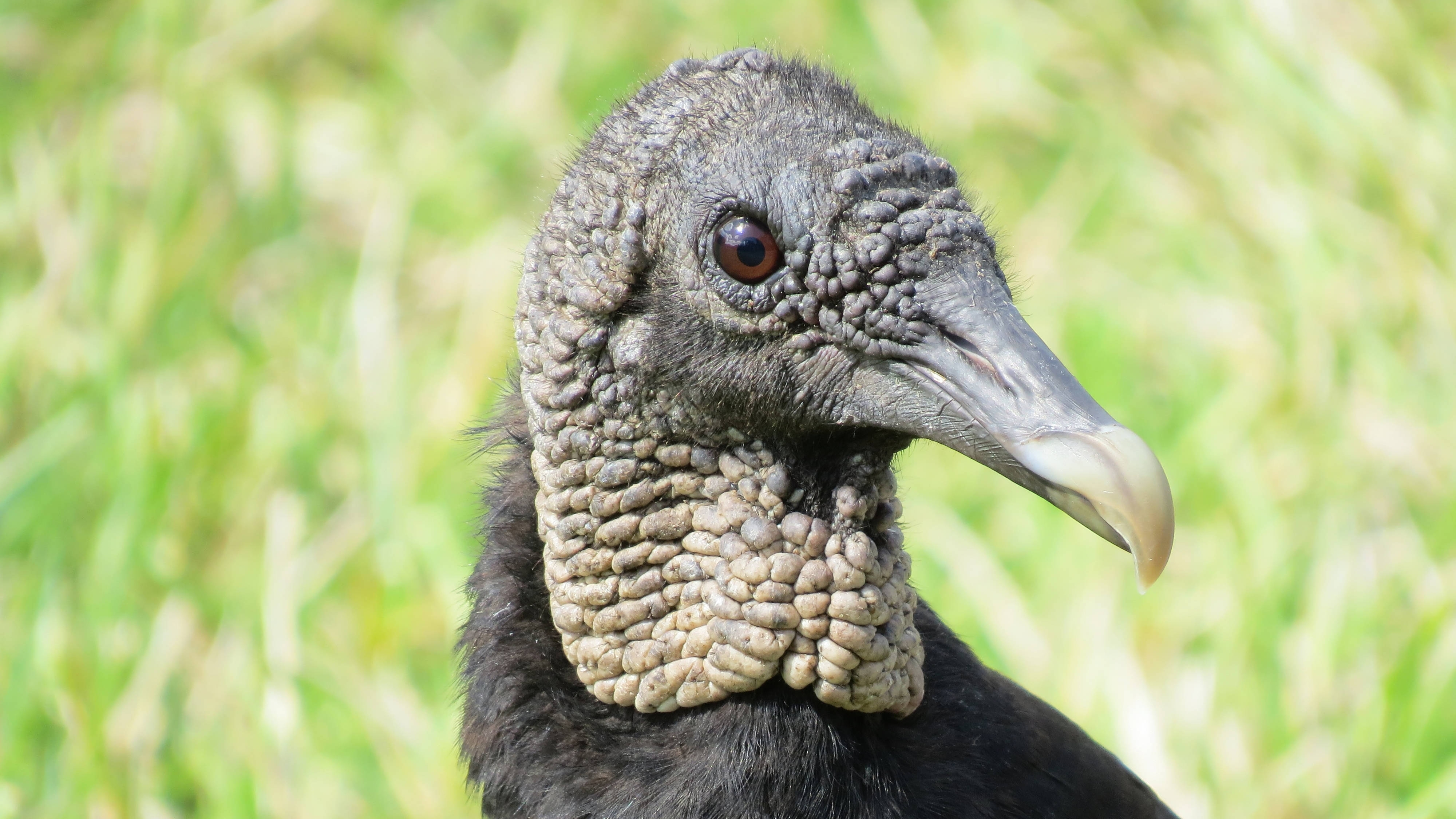NWRC Research Areas: Avian and Invasive Species Populations

Our scientists are developing information and methods to manage avian and invasive species populations that impact agriculture, property, natural resources, animal health, and human health and safety.
New information and methods for managing avian and invasive species populations that damage agriculture, property, natural resources, animal health, and human health and safety are a high priority for the Avian and Invasive Species Populations Project located at NWRC’s Florida Field Station in Gainesville, FL. Researchers study vulture roosting behavior, activity patterns, and population dynamics using GPS satellite telemetry data from tagged vultures. The information is coupled with GIS data to better understand vulture damage to property and livestock, as well as the hazards posed by the large birds to aircraft safety.
The management and reduction of invasive wildlife populations is also a major research area consistent with Executive Order 13112 of February 3, 1999, which asks federal agencies to “conduct research on invasive species and develop technologies to prevent introduction and provide for environmentally sound control.” Many invasive species are well established in Florida due to its climate, demographics, and environment. Invasive species currently studied by NWRC researchers include feral swine, black spiny-tailed iguanas, black and white tegus, agamas, and rose-ringed and monk parakeets. Research efforts are focused on the development of wildlife population monitoring methods, damage assessments, and capture/removal techniques.
Project Goals and Objectives
Goal: Develop information and methods applicable to the management of vulture populations; evaluate potential impacts on invasive species; devise control techniques to reduce or eliminate invasive species; investigate genetic and other approaches to detect and monitor invasive species; and develop methods to quantify resources impacted by invasive and over-abundant species.
Objectives:
- Ecology and Management of Vultures
- Defining Impacts on Invasive and Other Problem Species
- Population Biology and Management Methods for Invasive Reptiles
- Developing and Applying Damage and Population Performance Metrics to Assess Need and Efficacy of Management Actions
- Methods to Detect and Monitor Invasive Wildlife Populations
Related Links
- NWRC Florida Field Station
- Invasive Species and Vultures(project publications)
- Vultures: Wildlife Damage Management Technical Series (2.07 MB)
- Operational Activities: Vultures
Black and Turkey Vulture Wing Tags: Request for Assistance
We are currently conducting research involving telemetered and wing-tagged black vultures in Missouri and Arkansas, though the birds may use adjacent States as well (e.g., Oklahoma). Each tagged bird has a white cattle ear tag in its RIGHT wing and each tag has a letter and number (i.e., A47 or C20). The tags may be visible from below while the birds soar or while birds are perched. The purpose of this study is to better understand black vulture movements, human-black vulture conflict, and to test vulture management tools.
We have also conducted research evaluating the movements of wing-tagged black and turkey vultures in several parts of the country, including, South Carolina, Texas, and Florida, Indiana, and Kentucky. In general, the purpose of tagging is to get location information on the birds to see where they move and how the birds interact with the local environment. We also do satellite and GSM telemetry where we put transmitters on some birds to study their migration patterns and use of airspace (i.e., how high they fly, how far they travel, how many roosts do they use per season).
All sightings should be sent to Eric.E.Tillman@usda.gov or the mailing address below indicating the location of the sighting, tag number, species, as well as any pertinent behavioral or other information.
Additionally, the USGS Bird Banding Lab which maintains the central database for marked birds in North America requests these reports also be sent to them which can be done by going to www.reportband.gov.
Thank you for any information you may provide.
Contact Us
Avian and Invasive Species Populations
Bryan Kluever, Project Leader
Email: Bryan.Kluever@usda.gov
Phone: 352-375-2229
Florida Field Station
2820 E. University Ave.
Gainesville, FL 32641
Natalie Claunch, Wildlife Biologist
Spencer Hudson, Wildlife Biologist (vulture research coordinator)
Eric Tillman, Wildlife Biologist

